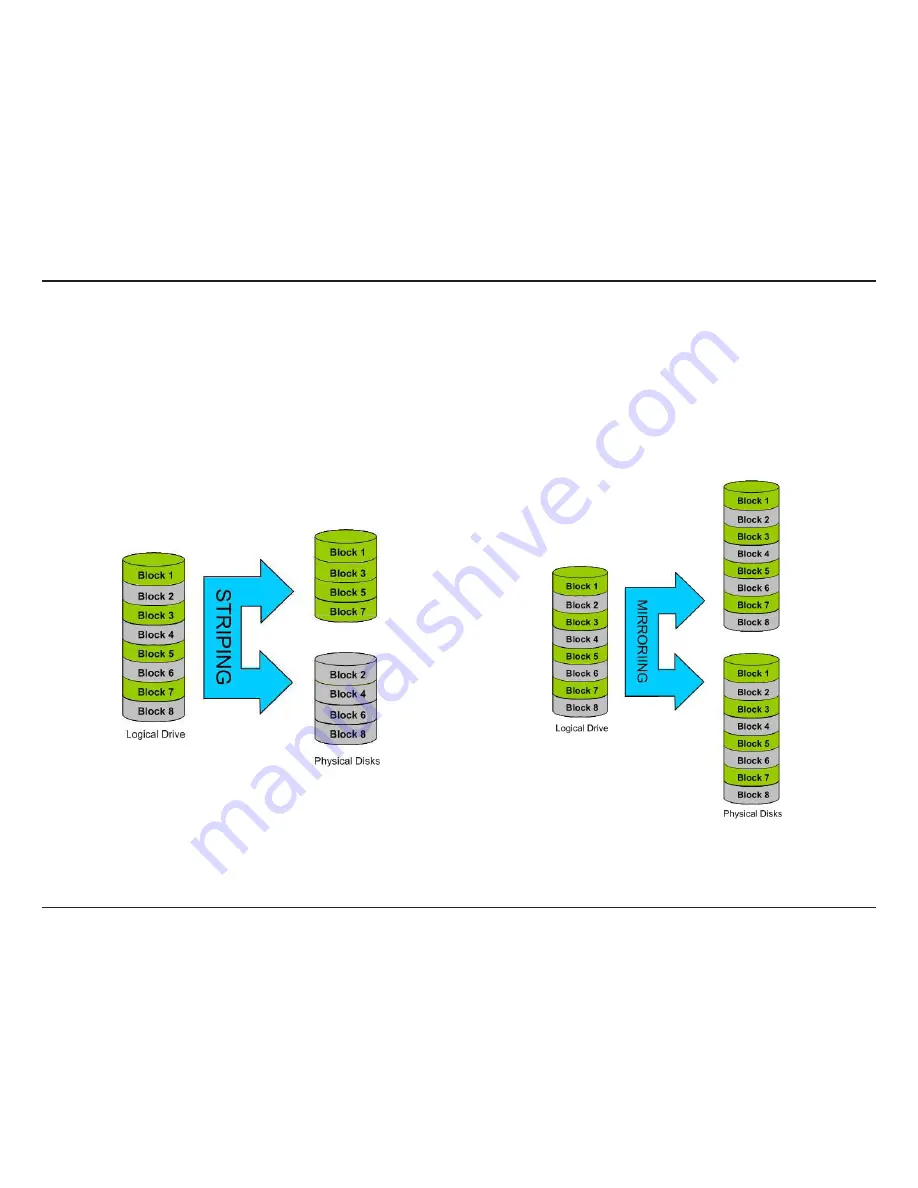
D-Link DNS-343 User Manual
79
What is RAID?
RAID, short for Redundant Array of Independent Disks, is a combination of two or more disks with the aim of providing fault tolerance and improving performance. There are
several different levels of RAID, with each one providing a different method of sharing or distributing data among the drives.
RAID 0 provides data striping, which spreads out
blocks of data over all drives, but does not provide data
redundancy. Although performance is improved, the
lack of fault tolerance means that if one drive fails, all
data in the array will be lost.
RAID 0:
RAID 1 provides mirroring over multiple disks, with the
same read/write speed of a single disk. A RAID 1 array
can only be as large as it’s smallest member disk.
Because the data is stored on multiple disks, RAID 1
provides fault tolerance and protection, in addition to
performance advantages.
RAID 1:
















































